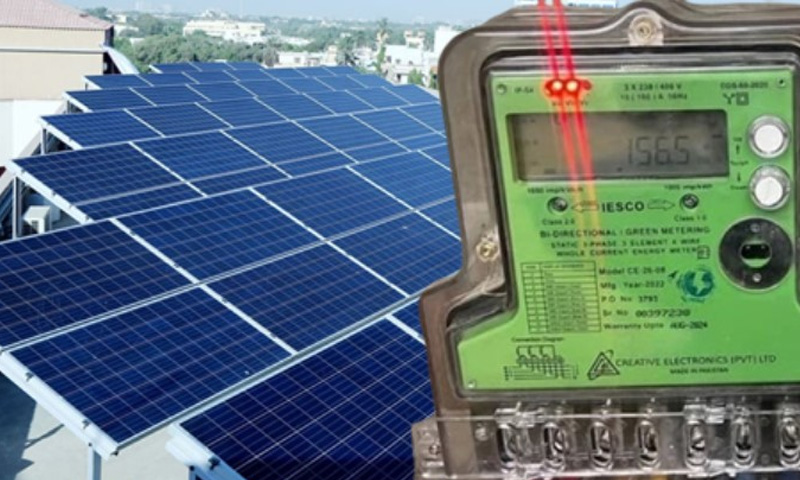Islamabad, Apr 7, 2025: The Pakistan Solar Association (PSA) has raised concerns that the proposed revisions to Pakistan’s net metering regulations could have a detrimental impact on rooftop solar investments and consumer savings.
In a formal communication addressed to Prime Minister Shehbaz Sharif and Power Minister Awais Leghari, PSA expressed its concerns regarding plans to eliminate the existing unit-for-unit net metering system, replacing it with a flat buyback rate of Rs. 10 per unit for solar electricity fed back into the grid.
The association warns that this change could result in a drastic reduction of consumer savings by up to 85%.
Read More: Reko Diq: Federal Govt Shows full financial support
Currently, under the prevailing system, solar energy users balance out the cost of imported electricity, priced at Rs. 50-70 per unit, with equivalent exports to the grid.
PSA illustrated that, under this model, a consumer who imports and exports 1,000 units would typically pay nothing, saving anywhere between Rs. 50,000 and Rs. 70,000.
However, with the proposed Rs. 10 buyback rates, the same export would only bring in Rs. 10,000, while the full import charges would still apply, effectively diminishing over 80% of the consumer’s savings.
The association also highlighted the impact on the payback period for solar systems, which usually spans 2 to 2.5 years, but would extend significantly beyond the duration of typical loan tenures for smaller systems.
Read More: Lucky Core Industries Limited: Leading Innovation in Industrial Growth
PSA further criticized the proposed 18% sales tax on solar exports, which mandates that DISCOs apply the sales tax on all electricity provided, regardless of how much is offset by solar energy exports.
According to PSA, most other countries either exempt or apply a zero-rate tax on renewable energy to encourage its uptake.
The PSA warned that such a change would perpetuate reliance on expensive capacity payments to independent power producers (IPPs), keep electricity tariffs elevated, and undermine Pakistan’s goal of achieving 30% renewable energy by 2030.
Although, the association recommended that the government consider successful policies adopted by neighboring countries like India and Bangladesh, engage with regional partners under the SAARC framework, and form a dedicated committee of industry experts within the Economic Coordination Committee and Ministry of Energy.
However, PSA also proposed a minimum one-year transition period to help maintain investor confidence and ensure the stability of the market before implementing any major policy adjustments.
